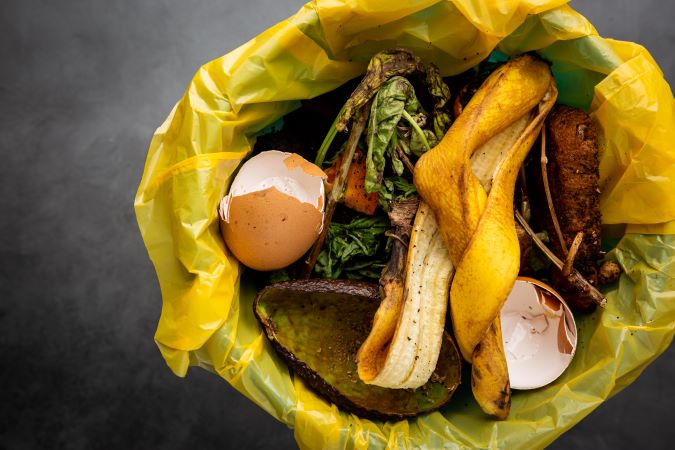- +31-624-845-535
- info@plabottles.eu
- in need of compostable packaging?
- Let's connect
The BMD Team is pleased to present our food composter. With a processing capacity from 50 kilos up to 10.000 kilos a day, our food composter is suitable for almost every organization that works with food. Take a look at our website and get in touch with a better way of solving the food waste problem. Want to know more about the ability to add bioplastic into our BMD food digester? Read more below on the progress.
Our bioplastic food composter
More information
The food composter
In an era of increasing environmental concerns and a growing awareness of the urgent need for sustainable solutions, innovative technologies are emerging to address our most pressing challenges. One such groundbreaking technology is the BMD (Bio-MaterialsDigester) food composter. This remarkable invention is poised to revolutionize waste management systems and significantly contribute to a greener, more sustainable future.
Waste management has long been a complex issue, with traditional methods often falling short in terms of efficiency, environmental impact, and cost-effectiveness. However, the introduction of BMD machines promises a paradigm shift in how we approach waste disposal, offering a wide array of benefits that extend across environmental, on-location, financial, and competitive dimensions.
The Bioplastic food digester
The idea of using the BMD food digester to break down plant-based packaging is fascinating. This would be a significant step in converting more usable waste into valuable resources, such as bio-gas, while simultaneously processing the food waste associated with these packaging materials in the BMD machine. However, the execution of this idea presents some challenges, primarily due to the diversity of plant-based materials used for food packaging.
To achieve this goal, thorough research into the composition and properties of various plant-based materials is necessary. Additionally, we must find suitable enzymes to efficiently break down these materials. This is a time-consuming process that requires experiments and adjustments to the BMD machine. We are busy with testing. As soon as possible, we will add information and update the site. If you would like to be kept informed about new developments of the bioplastic food composter machine, please email us. info@biomaterialsdigester.eu
Update: March 2024:
The search for a good machine builder in the Netherlands has ended. We are partnering with a machine assembling company in the south of the Netherlands. Building will start in Q1 2024 of the first machine types. We already identify several plant-based materials that can be used in our food digester. Products like; water resolvable napkins, sugarcane pulp products and cutlery and plates made from paper pulp will digest in our machine. With PLA, we are still testing and searching for the right mix of enzymes and machine settings.
The lastest information is that we partnered with Panasonic for our PLC and HMI for all our machines. More partnerships will follow with high quality international suppliers.
For more information, go to Bio Materials Digester
About BMD – Breaking Barriers in Food Waste Management
Unlike traditional composting machines, the BMD doesn’t yield compost as a final product. This unique approach eliminates the need for additional waste management, reducing workload and hassle. Our tailored food composter is designed to handle not only solid food waste, but also liquid products like soups and sauces. Through our enzymatic process, we break down these food products into smaller, manageable components, a feat unmatched by any other liquid food digester in the market.
Optimized Capacity for Peak Seasons
We understand the importance of having enough food waste capacity, especially during busy periods like holidays. Providing the right sized BMD machine is essential to offering reliability even during the busiest times of the year. It’s important to note that different types of food waste decompose at varying rates. Foods like dense-fiber vegetables and chicken bones require more time for breakdown. To better serve your unique needs, we require insights into your daily waste generation volume and types, particularly during peak periods.


Enzymatic Aerobic Digestion: Unveiling the Process
The BMD machine’s expertise lies in its ability to break down food waste fast and efficiently through enzymatic aerobic digestion. This process harnesses the power of our special enzymes mixes in combination with our machine and a monitored process to transform complex organic compounds into simpler components.
Enzymes, the catalysts of the natural world, take center stage in this process. Our unique enzyme mixes are specially developed for the BMD machine, and target specific organic molecules in the food waste, initiating their breakdown. Proteases tackle proteins, lipases address fats, etcetera. As a result, large, complex molecules are transformed into smaller, more manageable fragments.
Seamless Management, Remote Control
One of the key advantages of the BMD machine is its remote management feature. Employees simply need to place the food waste into the machine, and we take care of the rest. Our expert team manages the BMD machines remotely, ensuring a hassle-free experience for your staff.
Benefits of our food waste digester
Environmental Impact: Redefining Sustainable Practices
The BMD is drastically reducing CO2 emissions through the elimination of traditional waste transportation, it sets the stage for cleaner communities. The eradication of methane emissions, a potent greenhouse gas, adds a powerful climate change-fighting element to its repertoire. Moreover, the reduction of microplastics released from waste truck traffic contributes to healthier ecosystems and water bodies.
Financial Advantage: Paving the Way to Savings
Say hello to cost savings, eliminated container pickups and logistics. Reduced maintenance costs and optimized personnel efficiency further contribute to your bottom line. Additionally, BMD’s eco-friendly image aligns perfectly with modern consumer preferences, enhancing your reputation and market positioning.
Operational Excellence: Efficiency and Ease Combined
The BMD machine is effortless food waste processing, reducing physical labor, and enhancing hygiene form its operational core. Bid farewell to pests and welcome real-time waste monitoring that empowers informed decisions. Your team’s efforts can be redirected towards higher-value tasks, thanks to BMD’s streamlined processes.
Unparalleled Advantages: BMD’s Distinct Edge
In a league of its own, the BMD machine surpasses competitors. It boasts advanced food waste breakdown capabilities, processes liquids and sauces efficiently, and offers remote control with data analytics for unparalleled insights. Chemical-free operation, seamless wastewater treatment, and prevention of grease accumulation underscore its unique advantages.
